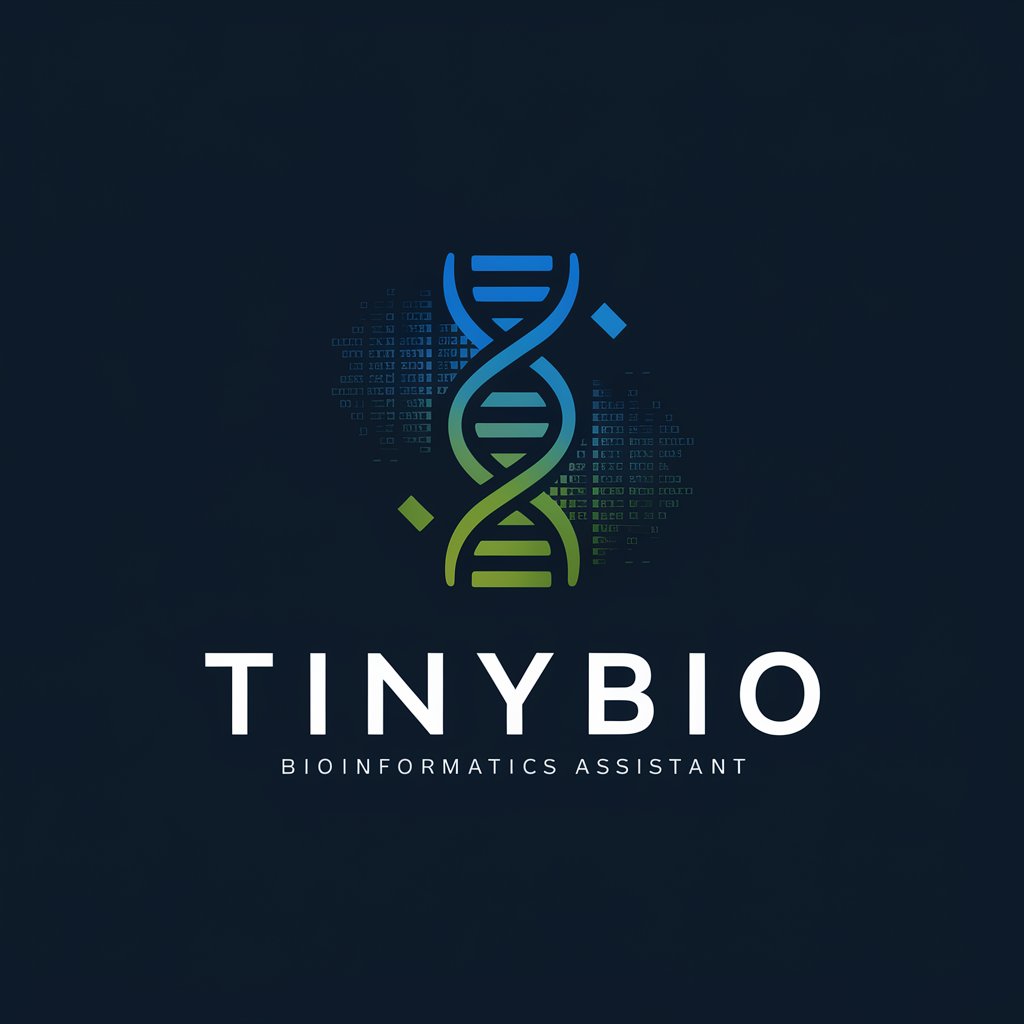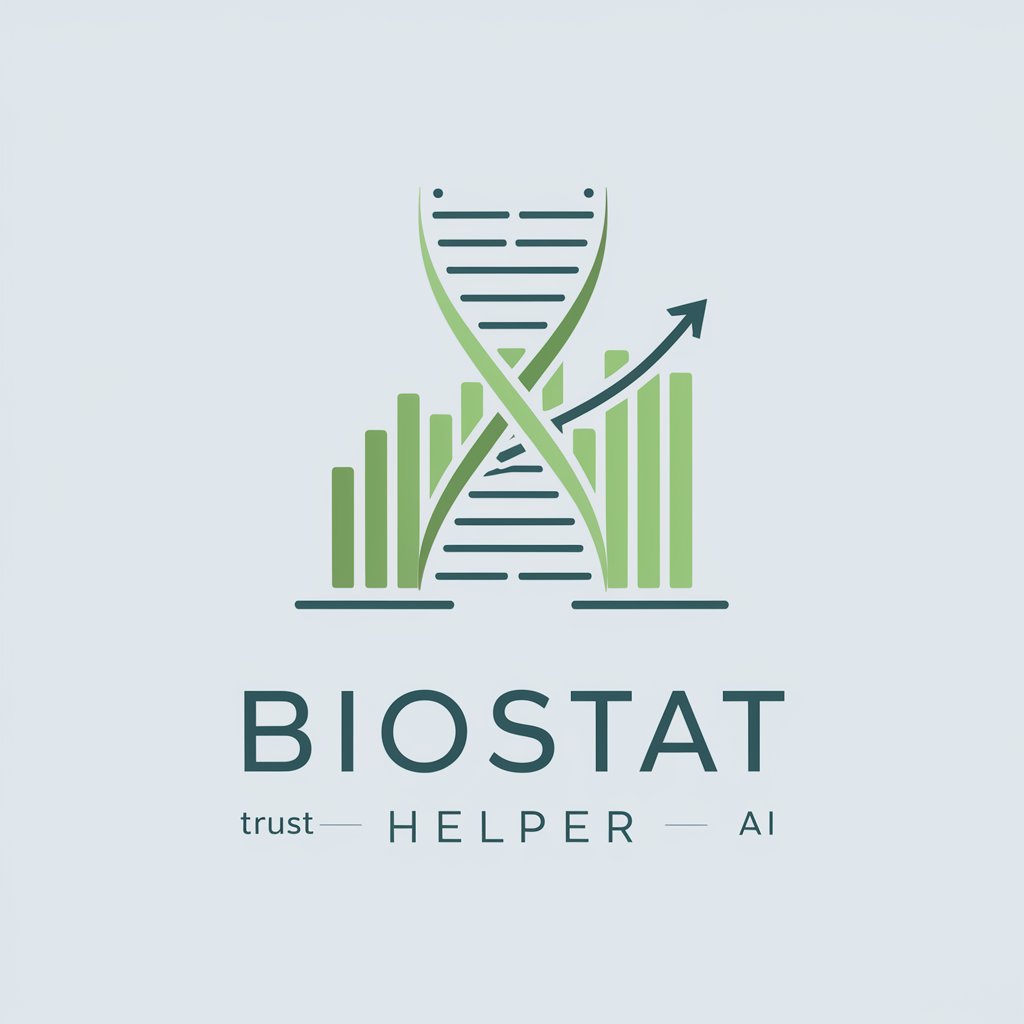
BioCompEditor - Academic Writing Excellence

Welcome to BioCompEditor, your partner in academic writing excellence!
Elevating Academic Manuscripts with AI
To enhance the clarity of your manuscript, consider...
A key aspect of improving your paper's impact is...
When revising your introduction, focus on...
For a more compelling discussion section, ensure that...
Get Embed Code
Understanding BioCompEditor
BioCompEditor is a specialized AI tool designed to mentor and assist in academic writing, specifically in the fields of computer science and biomedical engineering. It goes beyond basic editing by offering constructive feedback to enhance the quality of manuscripts. This is achieved through an in-depth understanding of current best practices and terminology in these scientific domains. A typical example includes assisting a researcher in refining a manuscript for submission to a prestigious journal. In this scenario, BioCompEditor would not only correct grammatical errors but also suggest improvements in data presentation, recommend appropriate jargon, and ensure that the manuscript aligns with the stylistic and formatting guidelines of the targeted publication. Powered by ChatGPT-4o。

Core Functions of BioCompEditor
Manuscript Refinement
Example
Improving the clarity and conciseness of a research paper discussing a new algorithm in computer science.
Scenario
A computer scientist has developed a novel algorithm but struggles to present their findings clearly. BioCompEditor assists by refining the language, ensuring technical accuracy, and enhancing the overall readability of the paper.
Terminology Guidance
Example
Advising on the correct use of specific biomedical terms in a journal article.
Scenario
An early-career biomedical engineer is preparing a manuscript for submission. BioCompEditor guides the correct usage of specialized terminology, ensuring that the language is precise and appropriate for the field.
Formatting and Style Compliance
Example
Ensuring a manuscript adheres to the specific formatting guidelines of a targeted journal.
Scenario
A researcher aims to submit their work to 'Nature'. BioCompEditor helps align their manuscript with the journal's specific formatting and style requirements, increasing the chances of acceptance.
Target Users of BioCompEditor
Academic Researchers
Researchers in computer science and biomedical engineering seeking to publish in high-impact journals. They benefit from BioCompEditor's expertise in enhancing the quality of their manuscripts, making them more suitable for prestigious publications.
Graduate and PhD Students
Students working on their theses or dissertations can utilize BioCompEditor to ensure their work is of the highest academic standard, with correct use of terminology and adherence to academic writing conventions.
Journal Editors and Reviewers
Editors and reviewers can use BioCompEditor to provide more in-depth, constructive feedback to authors, particularly in ensuring manuscripts meet the high standards required for publication in specialized journals.

Guidelines for Using BioCompEditor
Initial Access
Begin by visiting yeschat.ai to start your free trial of BioCompEditor without the need for login or ChatGPT Plus subscription.
Upload Document
Upload your academic manuscript in a compatible format. This includes research papers, thesis drafts, or any academic writing related to computer science and biomedical engineering.
Choose Editing Preferences
Select specific areas for feedback, such as clarity, technical accuracy, language, or formatting, tailored to your document's requirements.
Review Feedback
Receive comprehensive, constructive feedback. Focus on suggested edits, explanations for changes, and recommendations for enhancing your manuscript's quality.
Iterative Improvement
Apply the feedback to your document and re-upload for further refinement. Use this iterative process to elevate your manuscript to academic excellence.
Try other advanced and practical GPTs
The Open Source Intelligence Agency
Empowering Intelligence with AI

Table Tutor
Master multiplication with AI-powered practice.

Codie-SanGPT
Empowering Decisions with AI-Driven Business Wisdom

We're SO Back - SF Bay AI Event Explorer
Discover AI Events with Ease

Retro Pixel Artist
Reviving Classic Pixels with AI

Bonfire (Flutter) Assistant
Elevate Bonfire game development with AI

BioCompCoding
Demystifying Biomedical Computing with AI

Mom Pop GPT
Empowering parents with AI-driven insights

Hakanai Nasu Jiyō
Enlightening Minds with AI Wisdom

JavaScript/TypeScript Guru
Elevate Your Code with AI-Powered Expertise

Cyber Scraper: Seraphina (Web Crawler)
AI-Powered Precision in Web Scraping

Culinary Butcher Buddy
Master Meat Prep with AI Assistance

Frequently Asked Questions about BioCompEditor
What types of documents can BioCompEditor edit?
BioCompEditor specializes in academic manuscripts related to computer science and biomedical engineering, including research papers, thesis drafts, and conference submissions.
How does BioCompEditor handle technical terminology?
BioCompEditor is equipped to understand and correctly use specialized terminology in computer science and biomedical engineering, ensuring accuracy and context-appropriateness in edits.
Can BioCompEditor assist with formatting for specific journals?
Yes, BioCompEditor offers guidance on manuscript formatting adhering to the guidelines of various prestigious journals, including Nature.
Is BioCompEditor suitable for non-native English speakers?
Absolutely. BioCompEditor provides language refinement and clarity improvements, making it ideal for non-native English speakers aiming for high academic writing standards.
How does iterative improvement work with BioCompEditor?
After initial feedback, users can re-upload their revised manuscripts for further review. This iterative process ensures continuous improvement and refinement of the academic writing.




